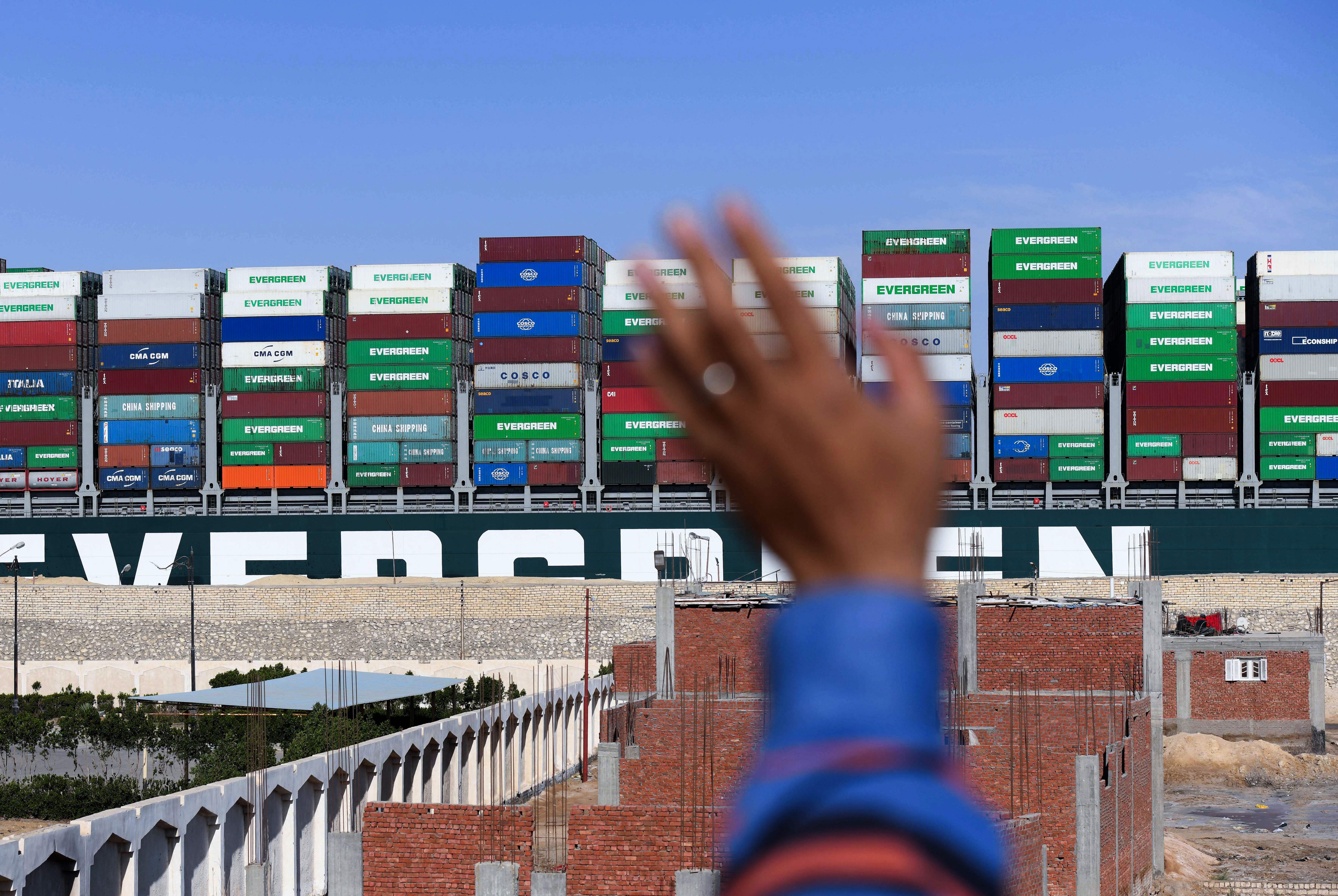How the Ever Given exposed the frailty of global trade
The smartest insight and analysis from around the web

A free daily email with the biggest news stories of the day – and the best features from TheWeek.com
You are now subscribed
Your newsletter sign-up was successful
The smartest insight and analysis, from all perspectives, rounded up from around the web:
"People like me and you are not really supposed to be aware" of container ships like the one that was stuck in the Suez Canal, said Amanda Mull at The Atlantic. They are part of the "high-stakes logistical ballet" ferrying pretty much "everything you've ever bought from Amazon or Best Buy or Target or Walmart." This process is largely invisible when "the industry is working as designed." But last week, it was thrown into chaos when the Ever Given, a container ship "longer than the Empire State Building is tall," became lodged sideways in the crucial waterway connecting the Red Sea and the Mediterranean, blocking more than 400 other vessels. It took nearly a week to free it. In that time, the "stupendous girth" of the Ever Given became "a singular visual metaphor" for the "frailty of the global system on which corporations have built our physical world."
"The largest container vessels have quadrupled in size during the past 25 years," said Harry Dempsey at the Financial Times. The Ever Given weighs 220,000 tons empty and carries up to 20,000 20-foot containers, enough to stretch 75 miles laid end-to-end. Stacking containers higher "makes such ships more susceptible to high winds," which played a role in making the Ever Given drift into the canal bank. The newest ships push design limits even further, said David Fickling at Bloomberg. Last year saw the launch of the first 24,000-container ship, and we may get to 30,000 "before the decade is out." Economies of scale make larger sizes attractive. But "such enormous hulls may cause problems that will put the Ever Given's mishap into the shade."
The Week
Escape your echo chamber. Get the facts behind the news, plus analysis from multiple perspectives.

Sign up for The Week's Free Newsletters
From our morning news briefing to a weekly Good News Newsletter, get the best of The Week delivered directly to your inbox.
From our morning news briefing to a weekly Good News Newsletter, get the best of The Week delivered directly to your inbox.
This accident is "a reminder of the vulnerabilities of global trade," said David Dodwell at the South China Morning Post. Experts have identified 14 "critical choke points for global trade," including eight maritime ones. Yet, "international cooperation in addressing" the trade routes is "virtually nonexistent." The Suez and Panama canals have "well-run authorities" that conduct frequent drills "to practice for disasters like this one," said Adm. James Stavridis, the former allied commander of NATO, at Time. But other choke points are just as vulnerable. The Strait of Malacca, separating the Pacific and Indian oceans, is "my least favorite to pass through," not just because of its "problems with piracy" but also because "massive ships are moving at top speeds on the equivalent of a two-lane road." The Strait of Hormuz, at the mouth of the Arabian Gulf, is another "tense passage," teeming with Iranian Revolutionary Guard maritime units.
The ship is finally free, but that's not the end of the story, said Pippa Stevens at CNBC. The Ever Given held up billions in trade while it was stuck, while exacerbating problems with supply chains strained by the COVID consumption boom. "The knock-on effects include congestion at ports as well as vessels not being in the right place for their next scheduled journey." Assembly lines that rely on "just-in-time" delivery of parts will be idled, creating more traffic jams that companies will have to sort out, and the "disruptions to global trade will continue to reverberate."
This article was first published in the latest issue of The Week magazine. If you want to read more like it, you can try six risk-free issues of the magazine here.
A free daily email with the biggest news stories of the day – and the best features from TheWeek.com